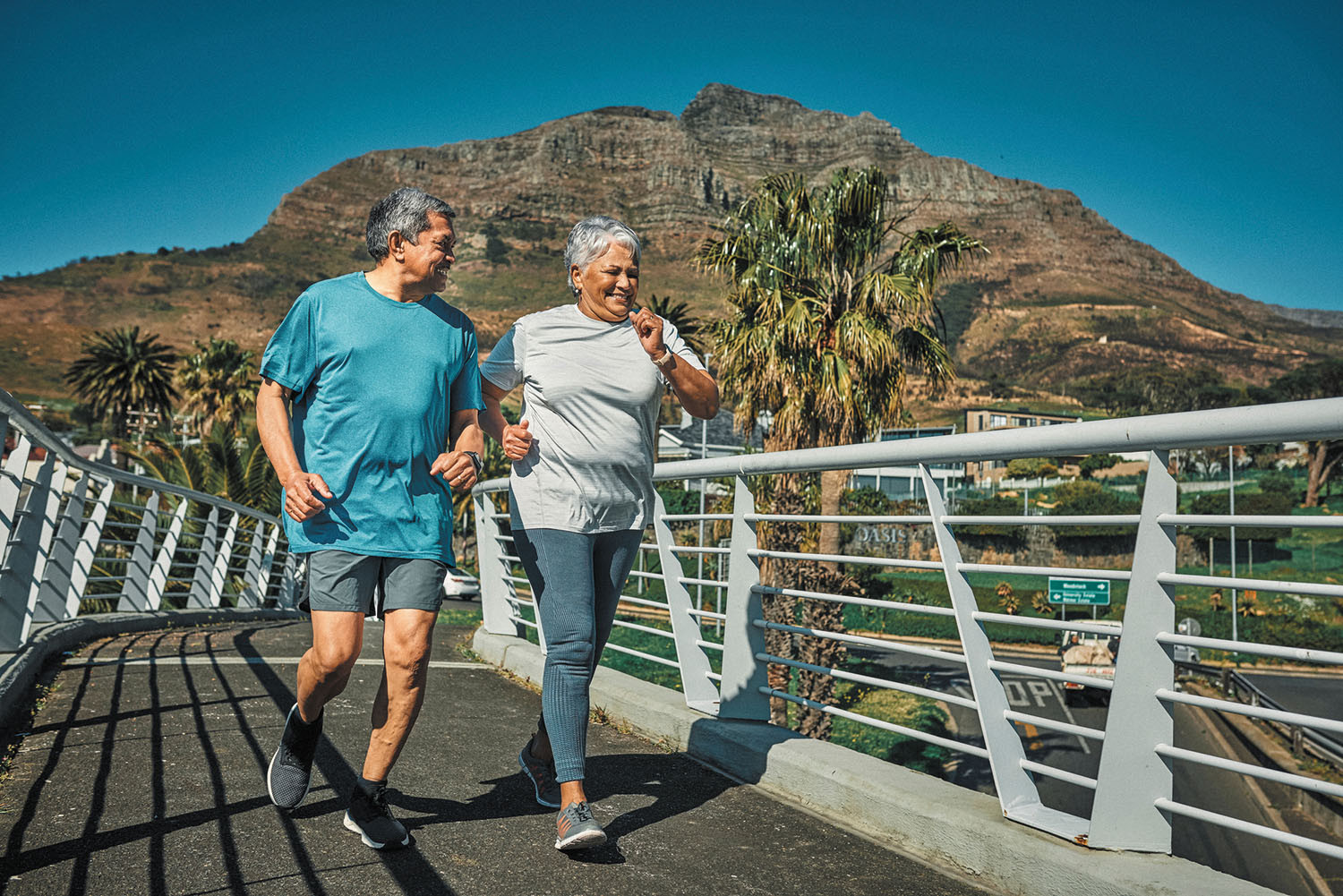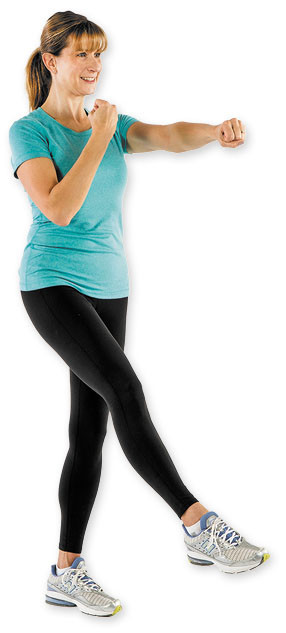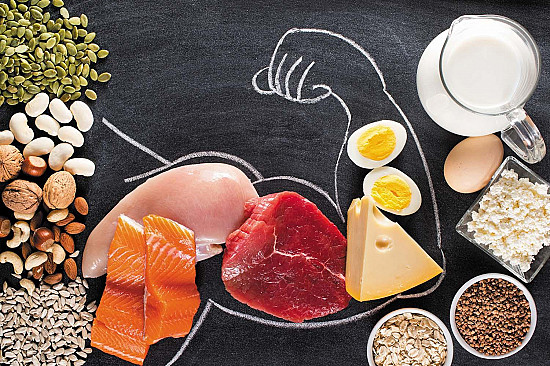Ways to maximize your energy
Lifestyle tweaks and a little planning will help reduce fatigue and give you more oomph for everyday activities.
- Reviewed by Anthony L. Komaroff, MD, Editor in Chief, Harvard Health Letter; Editorial Advisory Board Member, Harvard Health Publishing

The boundless energy we took for granted in youth usually fades as we age. While we once had the ability to tackle lots of strenuous or stressful tasks in a day, now even a few bursts of activity can leave us feeling flat-out fatigued. So what happens to our energy? Can we rev it back up? And how can we make the most of the energy we have?
Why energy changes
Your energy level can decline as a result of aging, illness, or other factors. Here are some of the main ones.
Age-related changes. As we get older, we lose energy-producing engines in the cells (mitochondria), and as a result we make less adenosine triphosphate (ATP) — the molecule that delivers energy to cells throughout the body. We also lose muscle mass, resulting in fewer cells, fewer mitochondria, and lower ATP production. If you're too tired to be active, it compounds the problem by further weakening and shrinking muscles.
Chronic illness. Many illnesses, such as depression, rheumatoid arthritis, and heart disease, cause fatigue, making it hard to get through daily activities.
Medication side effects of medications. Many drugs can make you drowsy, such as antidepressants, anti-histamines, anticonvulsants, and some blood pressure drugs (beta blockers, for example).
Poor diet. Are you eating too much processed food or simply not consuming enough calories? That's not helping your muscles, organs, or mitochondria. They all need nutrients and fuel to work properly.
Other lifestyle factors. Poor sleep, chronic stress, and social isolation also have physiological consequences that can sap energy at the cellular level.
Boosting energy
Fortunately, a healthier lifestyle can help give you more energy. That means eating a diet low in added sugars and processed foods, with enough calories and nutrients to meet your needs; getting seven to nine hours of sleep each night; managing stress; and (if necessary) talking to your doctor about medication side effects.
And perhaps the fastest, most important way to boost your energy is to move more. The recommended amounts of exercise are at least 150 minutes of aerobic activity (such as brisk walking) per week and at least two muscle-strengthening workouts per week. But studies have shown that any amount of exercise is beneficial.
For example, a review of almost 200 randomized controlled trials of resistance training, published online July 6, 2023, by the British Journal of Sports Medicine, found that people who did any strength training at all increased muscle mass and physical function compared with people who didn't do strength training. The most effective regimens for strength included higher-weight loads and more repetitions.
Move of the month: Front kick with a punch
Stand up straight with your feet together. Bend your arms so your hands are in front of you like a boxer. Step with your left foot, then kick your right leg forward. At the same time, extend your left arm to punch. Lower your leg and bring your arm back to the starting position. Repeat on the other side, kicking with your left foot and punching with your right arm. Repeat the sequence 20 times. Exercise photo by Michael Carroll |
Be frugal with energy
In addition to boosting your energy, it's essential to use what you have wisely. Think in terms of "energy dollars" and be more frugal about the way you spend them. Strategies known as the "four P's" can help.
Prioritizing. "Think about what you need to accomplish in a day versus what you want to accomplish, and make the necessary activity your priority," says Erin Krey, a physical therapist at Harvard-affiliated Spaulding Rehabilitation Hospital. "For example, maybe you have a doctor's appointment in the afternoon, but you wanted to go shopping in the morning. Instead, go shopping on another day, and take it easy in the morning so you'll have the energy to get to the afternoon appointment."
Planning. Planning how to use your energy will help you accomplish more. "Planning could be scheduling just one major errand or appointment per day as opposed to three errands, which you know will leave you exhausted the next day, or cleaning just one room in your house per day as opposed to several," Krey says.
Planning could also mean that you schedule rest breaks, or that you gather all the ingredients you need to prepare a meal and place them by the stove before you start, so you won't have to keep going back and forth across the kitchen. Or planning could involve asking for help from family members or friends in advance of a job that will be too taxing for you alone.
Pacing. Don't try to rush through activities, which can use up all of your energy quickly. "Rushing leads to fatigue and increases your risk of falling," says Kim Stuckart, an occupational therapist at Spaulding Rehabilitation Hospital. "Remember that slow and steady will win the daily race. Spread out your activity to give yourself time to recover in between tasks."
What might that look like? "Break up a large task, like cleaning a room, into smaller tasks such as dusting, vacuuming, or making a bed, with breaks in between," Krey says.
Positioning. Maintain good posture when you're sitting or standing. "You'll expand your lungs so they can take in more oxygen," Krey says. "And it might help to sit down during activities to reduce the amount of energy you're using. You can apply this to anything that makes you feel tired while standing. Try sitting at a table when you do meal prep, or sitting in a shower chair when you bathe. These little attempts to save energy will eventually add up so you feel better and you can stay active longer."
Image: © Charday Penn/Getty Images
About the Author

Heidi Godman, Managing Director
About the Reviewer

Anthony L. Komaroff, MD, Editor in Chief, Harvard Health Letter; Editorial Advisory Board Member, Harvard Health Publishing
Disclaimer:
As a service to our readers, Harvard Health Publishing provides access to our library of archived content. Please note the date of last review or update on all articles.
No content on this site, regardless of date, should ever be used as a substitute for direct medical advice from your doctor or other qualified clinician.

















